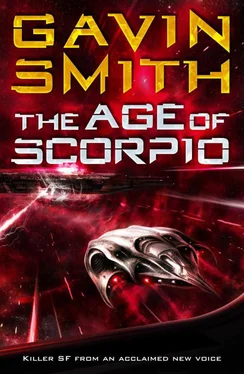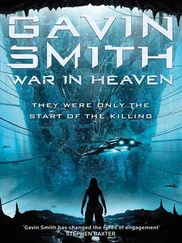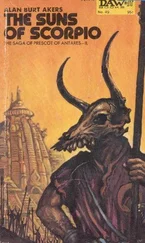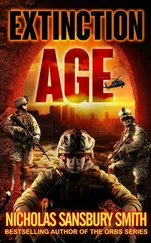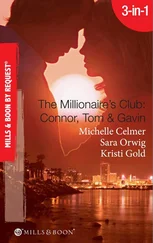All but the most inaccessible of the clifftop forts had suffered the same fate. They had either been abandoned by their shrewd, if cowardly – in Britha and Fachtna’s eyes – defenders, or they too had been destroyed, their walls pulled down, presumably by the giants.
At the larger settlements Hanno, Kush and some of the oarsmen went ashore for supplies and goods to trade back in their homeland. Britha was not happy with this and had told Hanno that this was not a good way to behave. Hanno had told her that had the people been there they would have traded, but they were not and he would be ruined if he returned with nothing to show for his voyage. Not to mention they needed supplies if they wanted to eat. He scoffed at the idea of leaving goods as payment. Sometimes Fachtna would go with them. Not to loot but to get a feel for the land.
They saw people very occasionally. Here and there they would see a warrior on horseback. The southrons were a tall, well-made people with no beards to speak of, but their dark hair was long, as were their moustaches, which they braided. Their mail and weapons looked fine from a distance, and their horses were much larger than the ponies they used in the north. Britha understood that their appearances were a futile show of force. These were chiefs, princes and champions who had come too late to save their people from Bress’s depredations. It looked like a rich land but in the wake of the black curraghs the land seemed almost dead, populated mainly by ghosts.
At other times Britha had the sense that there were people keeping pace with the Carthaginian ship beyond a coastal treeline or hidden in the marshes. They were most likely a warband shadowing them in case they were raiders. She was sure that Teardrop sensed this too.
Fachtna was restless. It was all happening too slowly for him. He wanted, needed, to confront Bress. Britha wondered how much of that was fear of Bress and wanting to get it over and done with. He spent most of the time standing by the prow of the ship, getting soaked as the ram prow ploughed through wave after wave as sail and oar carried them south. Whenever he had the chance, he went ashore. Britha was sure that the nonsense of the god-slaves bothered him as well.
Britha had thought Teardrop ill. He had seemed in pain. She had seen him mouthing words in what she thought were the clipped syllables of his own language. At first, with disdain, she had thought him praying in a servile manner to his gods – it looked a little too much like begging. Then she had started to get the feeling that he was talking to someone that she couldn’t see. This disconcerting feeling grew.
Fachtna had told her that pain was the price of Teardrop’s power. This she could believe: it looked like the strange man was being tormented. Teardrop became colder, more distant, as if he was resigned to something. She was not sure if she was imagining things, but it looked to her like the veins in his head were bulging more. More than once she had thought something was moving under his skin. The flecks of silver in his eyes were not of her imagining. When she focused she saw that each one looked like a tiny shard of frozen quicksilver. The god-slaves were the least of Teardrop’s worries.
The ship was eighty feet long by ten feet wide. They slept on deck with those rowers who did not sleep below, all of them crushed together, sweating, farting and, in the god-slaves’ case, puking when the wave sickness was upon them. The wave sickness did not bother Britha, Teardrop or Fachtna.
‘Is it getting stronger the closer we get?’ Teardrop asked with urgency in his voice. Meaning her dream. It was, but she neither wished to admit that to Teardrop nor think about what it meant. She was frightened by the intensity of her experience, embarrassed that it had been so public, tired of being in the cramped stinking confines of the ship and thoroughly sick of listening to meaningless jabbering and incessant praying.
‘Enough,’ she said quietly to herself. She got to her feet, not even bothering to adjust her robe, grabbed her sickle and made her way over the sea of sleeping and half-awake rowers towards where the god-slaves were kneeling by the stern of the ship.
‘Britha!’ Teardrop hissed, but she ignored him.
‘Don’t want your life?’ she demanded. The god-slaves turned at the sound of her voice. She was no longer sure what language she was talking but they seemed to understand it. ‘Fine. I’ll have it.’
She started the words of the chant in the language of the Pecht, the language of her people. She saw the battle on the beach, the ruins of Ardestie, the destroyed broch empty, her people gone. Her people had fought until Bress’s magics, the demon magics – she had to not forget that – had enslaved them. The warriors fought, the landspeople fought, the old folk would have fought, the children would have fought, and here were people, victims of the Lochlannach like her people had been, and they wanted to embrace it.
The words of the working were not familiar to her. They were old and cold, taught to her a long time ago in veiled whispers by the black-robed sacrificers. Dark magics, every bit as dark as the consumption of the flesh of your enemies to know their secrets.
She grabbed the first one by the hair. He did not resist. Her pleasure at the hot salt splash of blood on her face was a pale echo of what she felt when she made love to Bress and the Dark Man whispered to her. She kicked the corpse over the side of the boat. She had taken what she needed from it with powerful words. Let Dagon consume the flesh now, or the cowardly gods of the Goddodin. Carrion gods.
Fachtna was sitting up now. His face neutral, he translated what she was saying so the crew could understand who she was, what she was. Someone had run screaming for Hanno. He came on deck, pulling his blaidth on. Kush was next to him, naked but for a loincloth, carrying his bronze axe. The rowers were scrabbling away from Britha now. Hanno and Kush exchanged a look and Kush started forward. Fachtna stood up, still translating Britha’s words as another god-slave died with no cry of pain, nor had she begged for her life. Britha used her sickle to paint the planks of the ship with the god-slave’s blood. It ran into the gaps and dripped into the hold below.
Fachtna stood between Kush and Britha. He was leaning on his sword, which was still in its scabbard, but his message, as he continued with the translation, was clear. There was not a moment of hesitation from the tall axeman, who stepped forward, but Hanno placed a hand on Kush’s shoulder and nodded towards Germelqart. The navigator was shaking his head.
Teardrop was on his feet, but Fachtna put a hand on his shoulder and shook his head. Teardrop, not long ago, would have stopped her, would have ignored Fachtna. He watched another of the god-slaves die and get kicked overboard. Then he knew he was just as culpable as Fachtna, as Britha. He found he didn’t care about their lives.
Britha cared about their lives because she wanted them. She wanted what was left of their lives. She wanted what would have been. She would take their weak and meagre spirits. She would deny the Dark Man even the paltry strength of their weakness. She only hoped that by saying the words that stole their spirits, she would not taint herself with their weakness.
It was only after she had sawn through the final god-slave’s throat, only after her robe was soaked with their blood, only after her skin was hot and red, that she realised how grateful each of them had looked.
She turned around to face the rest of the ship. The rowers cowered away from her even as blood trickled towards them. Hanno stared at her with horror, Kush with distaste, and Teardrop’s expression was cold. Fachtna had an unpleasant-looking half-smile on his face, and the navigator, Germelqart, looked at her with approval and nodded his thanks.
Читать дальше
